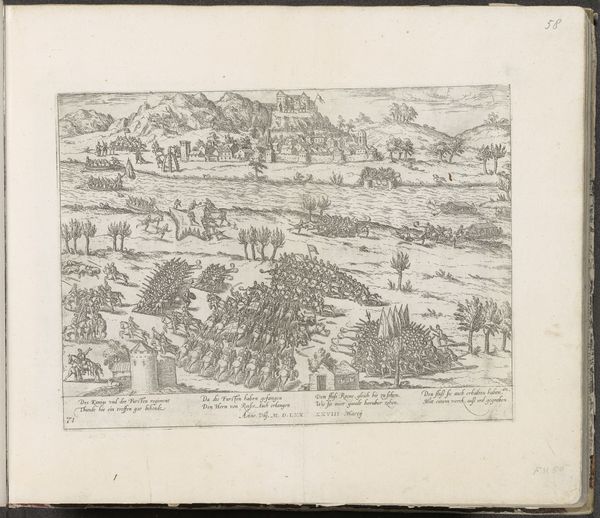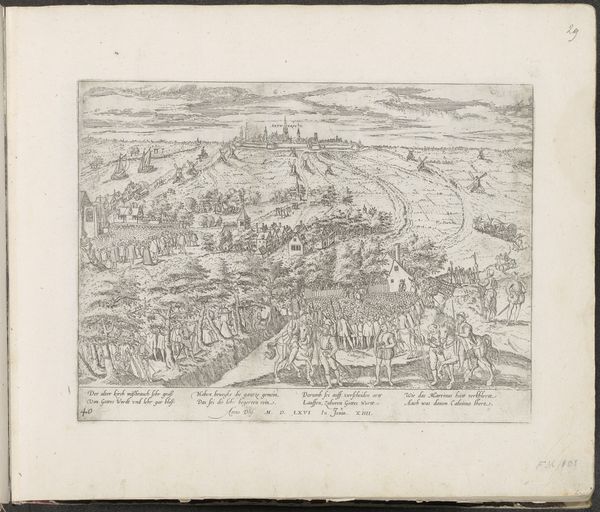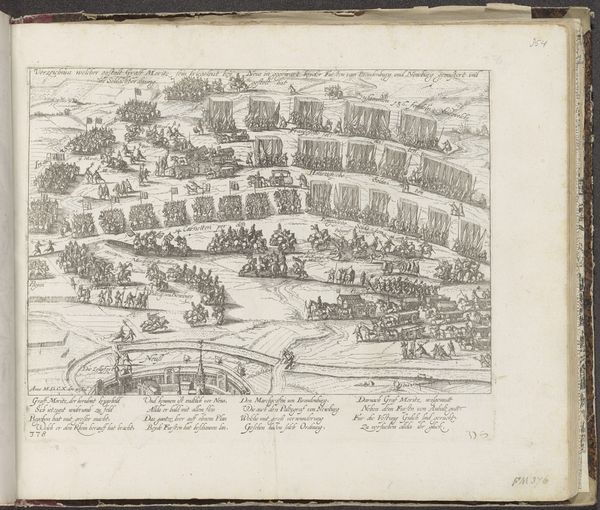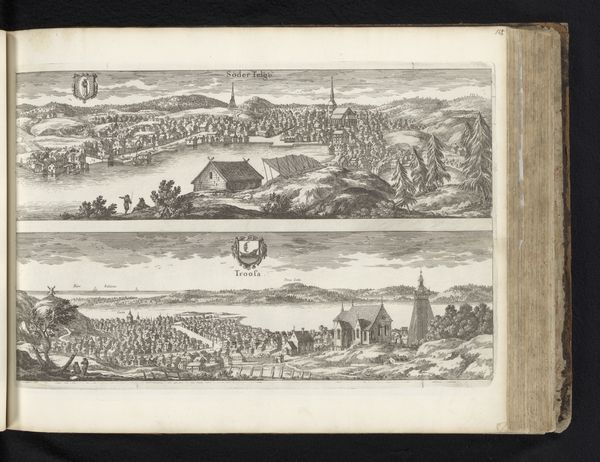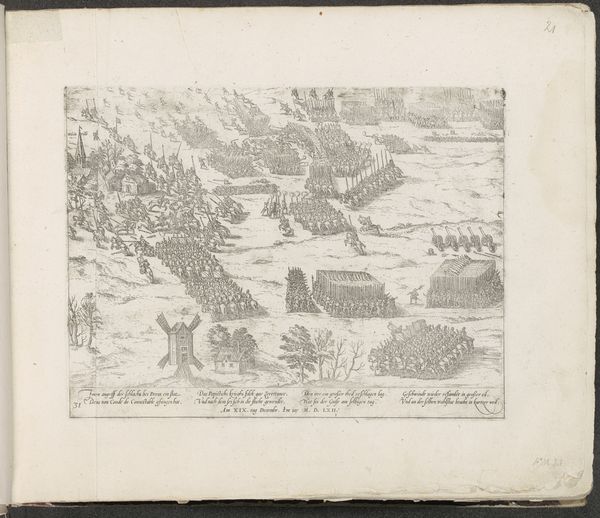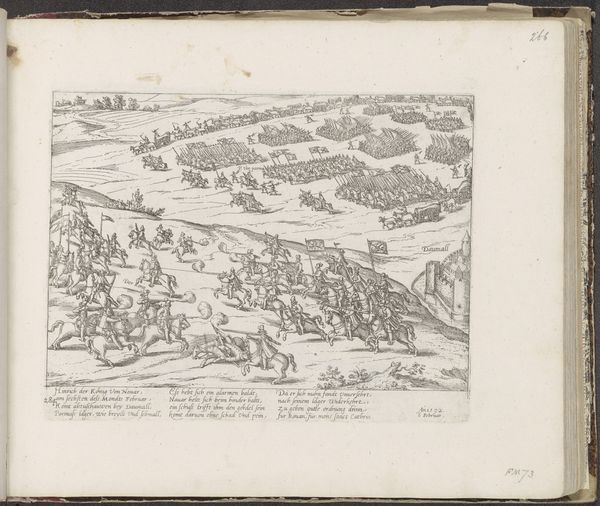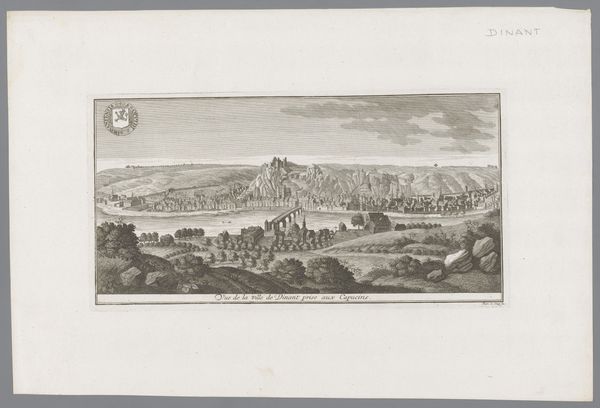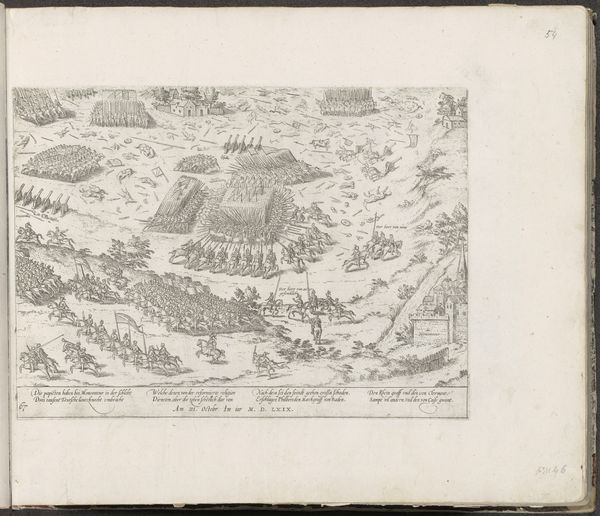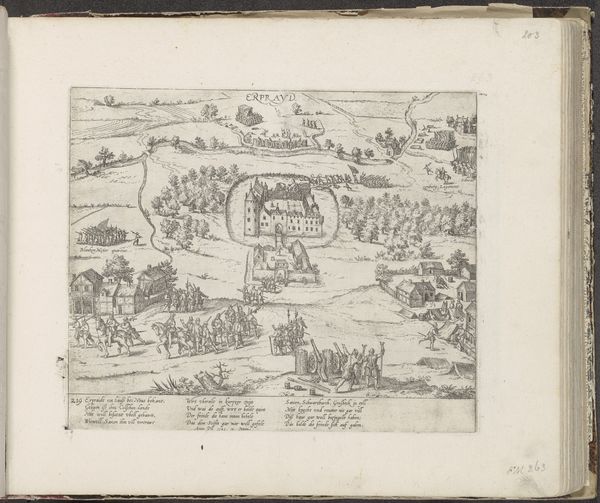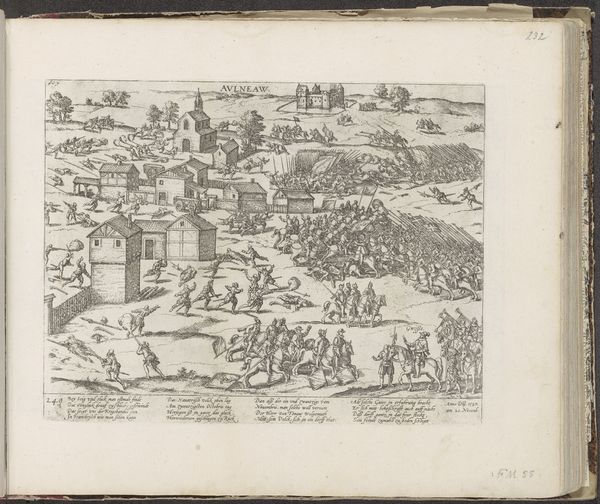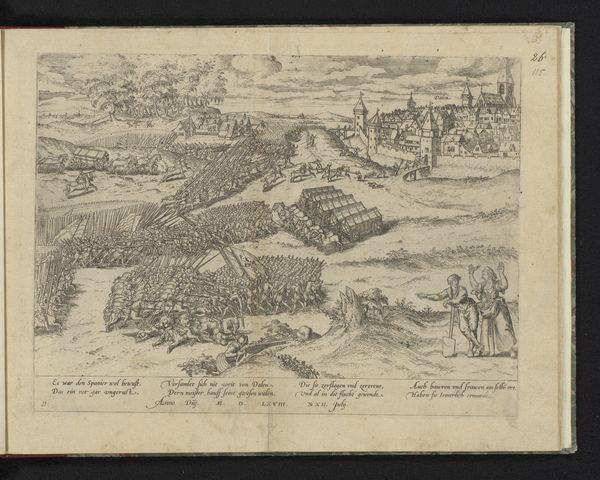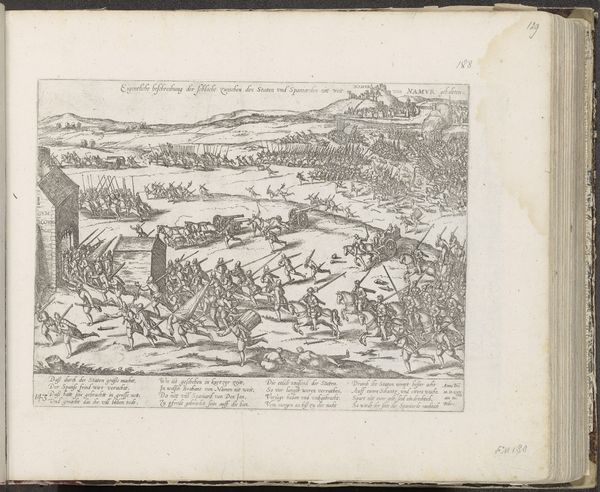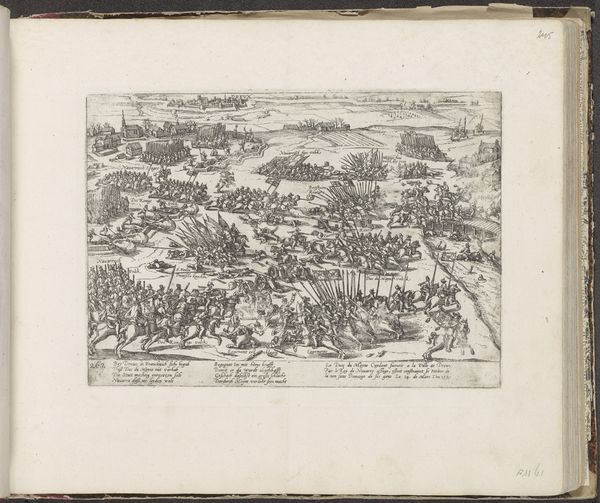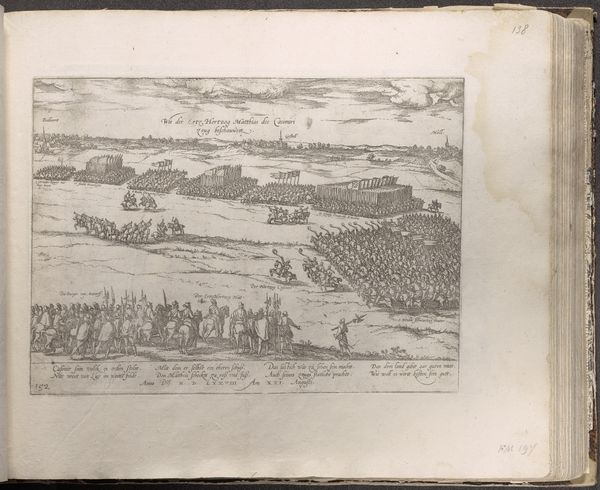
drawing, etching, ink, architecture
#
pen and ink
#
drawing
#
toned paper
#
ink drawing
#
pen sketch
#
etching
#
landscape
#
11_renaissance
#
personal sketchbook
#
ink
#
ink drawing experimentation
#
pen-ink sketch
#
pen work
#
sketchbook drawing
#
cityscape
#
italian-renaissance
#
sketchbook art
#
architecture
Dimensions: height 190 mm, width 385 mm
Copyright: Rijks Museum: Open Domain
Editor: Here we have Étienne Dupérac's "Circus van Maxentius te Rome" from 1575, a pen and ink drawing with etching. It's striking how much open space there is within the Circus itself. How do you interpret this work? Curator: This image reveals a great deal about the Renaissance's relationship to its classical past. The Circus of Maxentius was, and remains, a ruin. Dupérac’s depiction highlights this ruin, but more importantly, shows a reintegration of this historical structure into the 16th-century landscape. Look at how animals graze, and people casually traverse the grounds. What do you think that communicates? Editor: That it was part of everyday life? No longer grand spectacle, but integrated into the fabric of the city. Curator: Precisely. The politics of imagery here are interesting. This is not a celebration of Roman imperial power, but a reclaiming of that space for contemporary society. Artists like Dupérac played a key role in shaping how the public understood and engaged with these ancient sites. Was it nostalgia or practicality influencing Dupérac, I wonder? Editor: So it’s not just a historical record, but a statement about how the Renaissance viewed the classical world? Curator: Absolutely. Think about how prints like this circulated; they informed ideas about Rome and its history. Dupérac presents a vision of integration, a blurring of past and present. Editor: I never thought about the politics inherent in depicting a ruin. I assumed the artist was just recording it. Thanks! Curator: There's always more than meets the eye! Considering the social context opens up a whole new dimension to understanding art.
Comments
No comments
Be the first to comment and join the conversation on the ultimate creative platform.
